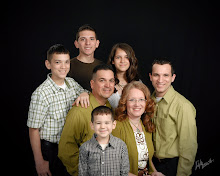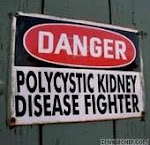The following ran in the New York Post yesterday.
So what would you do if your mom or dad, or perhaps your sister or brother, needed a kidney donation and you were the one best positioned to donate?
Fred R. Conrad/The New York Times
Nicholas D. Kristof
On the Ground
Nicholas Kristof addresses reader feedback and posts short takes from his travels.
Related
Times Topics: Health Care Reform
Most of us would worry a little and then step forward. But not so fast. Because of our dysfunctional health insurance system, a disgrace that nearly half of all members of Congress seem determined to cling to, stepping up to save a loved one can ruin your own chance of ever getting health insurance.
That wrenching trade-off is another reminder of the moral bankruptcy of our existing insurance system. It’s one more reason to pass robust reform this year.
Over the last week I’ve been speaking to David Waddington, a 58-year-old wine retailer in Dallas, along with his wife and two sons. I’d love to know what the opponents of health reform think families like this should do.
Mr. Waddington has polycystic kidney disease, or PKD, a genetic disorder that leads to kidney failure. First he lost one kidney, and then the other. A year ago, he was on dialysis and desperately needed a new kidney. Doctors explained that the best match — the one least likely to be rejected — would perhaps come from Travis or Michael, his two sons, then ages 29 and 27.
Travis and Michael each had a 50 percent chance of inheriting PKD. And if pre-donation testing revealed that one of them had the disorder, that brother might never be able to get health insurance. As a result, their doctors had advised not getting tested. After all, new research suggests that lack of insurance increases a working-age person’s risk of dying in any given year by 40 percent.
“At the time David needed a transplant, the people closest to him couldn’t even offer a lifesaving donation — for insurance reasons,” said Mr. Waddington’s wife, Susan.
Travis, who is living in New York and working toward a math doctorate, is anguished at having to weigh insurance obstacles against the chance to save his dad.
“Can you put a price on your father’s life?” he asked. “My brother and I talked it over privately, and agreed that we should both go ahead and get tested anyway. It seemed like the only course of action. We presented our plan to our parents, and of course Mom immediately shot it down, with Dad firmly behind her.
“We had to respect their right to want to protect us. But it was enraging to be in that situation, and to be completely impotent to do anything to help. I told myself a number of times that we would reconsider the issue of testing if Dad’s dialysis stopped working before he got a transplant.”
David Waddington finally got that transplant when a kidney from a deceased donor became available. But our insurance system has had other excruciating consequences for the Waddingtons. Though PKD has no cure as such, there are experimental medications that may delay kidney problems. To get access to the medications, a patient must be tested — and since Travis and Michael Waddington don’t dare get tested, they don’t have access to these medications.
“The only way to do it is to lie about your name during testing, to use a fictitious name,” Susan Waddington said. “That was the advice we got from a major person in the field. We didn’t do that.”
The Genetic Information Nondiscrimination Act, passed last year, should eventually help people get access to health insurance even if they have a genetic predisposition to a disease. But insurance companies will still be free to discriminate against people who show symptoms of those diseases.
That’s what’s happening now with Michael. For years, he and Travis were afraid to mention to physicians their 50 percent chance of inheriting PKD, but recently Michael began suffering pains and went to the emergency room. After examining him and ordering tests, the doctor asked him, “Have you ever heard of PKD?”
“I felt the jig was up, and I could disclose my knowledge,” Michael said, so he told the doctor about his father.
The broader problem is this: Our broken system leads Americans to spend 16 percent of our national income on health care, twice as much as in parts of Europe, yet with maternal mortality rates and child mortality rates twice those of the best-performing countries. Lack of insurance is linked to nearly 45,000 unnecessary deaths a year, according to a peer-reviewed study to be published in the December issue of The American Journal of Public Health.
None of this seems to move members of Congress who oppose health reform. They have first-rate health care for themselves and so perhaps don’t appreciate how their posturing forces people like the Waddingtons into impossible situations. Let’s hope they find it in their hearts to overhaul an existing insurance system that is the disgrace of the industrialized world.
Subscribe to:
Post Comments (Atom)











No comments:
Post a Comment